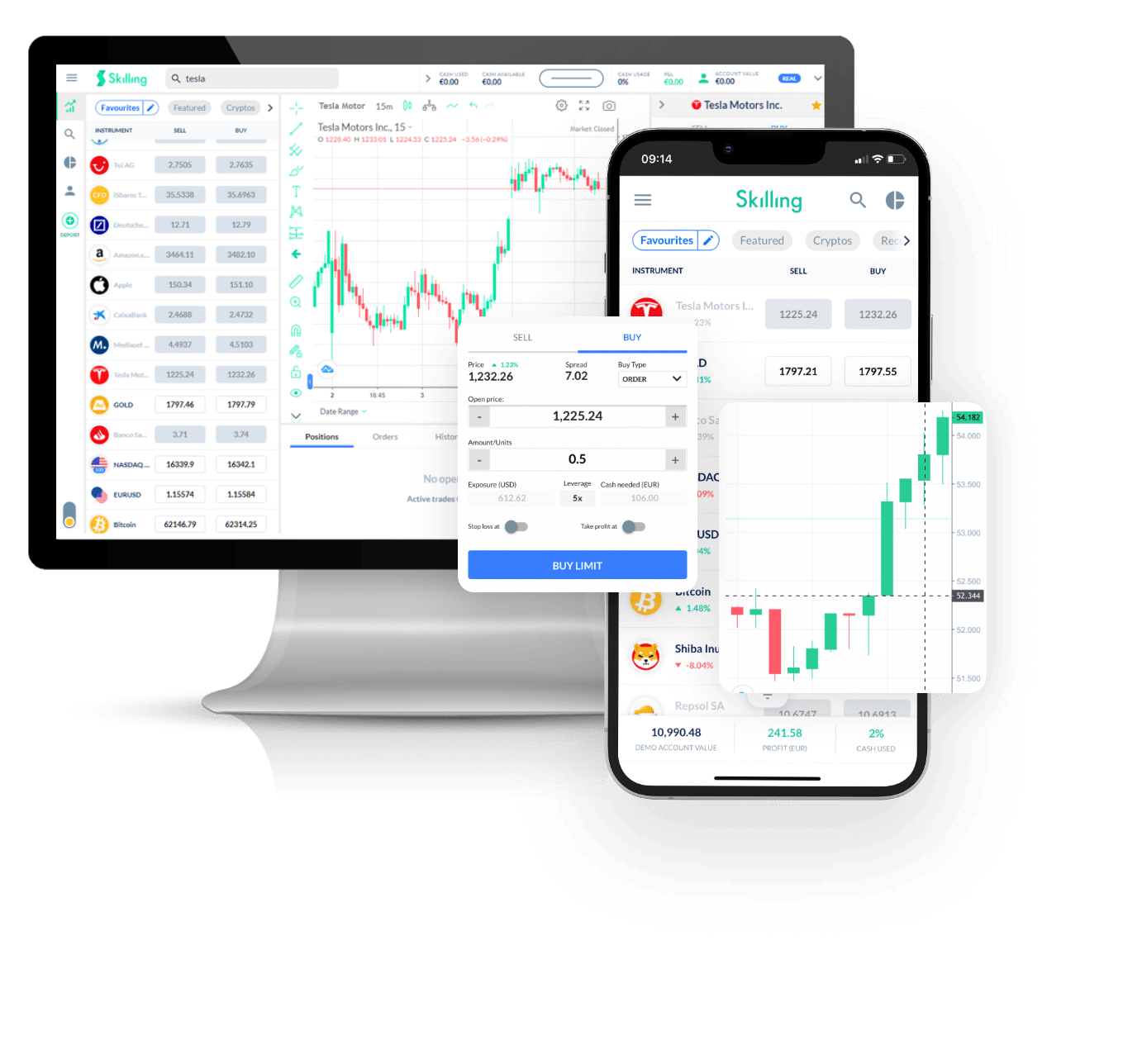Loading...
Tencent stock
[[ data.name ]]
[[ data.ticker ]]
[[ data.price ]] [[ data.change ]] ([[ data.changePercent ]]%)
Low: [[ data.low ]]
High: [[ data.high ]]
About
History
Differences between Investing vs Trading
About
History
Differences between Investing vs Trading
Tencent was founded in November 1998. The company is headquartered in Shenzhen, China. Tencent is one of the largest Internet companies in the world. Tencent's mission is to "improve the quality of life through Internet value-added services". The company's businesses include social networking, Web portals, e-commerce, and video games. Its flagship products are QQ and WeChat.
Tencent owns a number of subsidiaries, including messaging app operator Weixin Group, China Literature, game developer Supercell, and others. In March 2014, Tencent became the world's fifth-largest Internet company by market value after Alibaba Group Holding Limited surpassed it. In April 2019, Tencent surpassed Facebook to become the world's fourth-largest publicly traded company.
Tencent is currently the largest Internet company in China, and its share price has been on a tear in recent years. The stock is up nearly 70% since the start of 2020, and analysts expect the trend to continue in 2021 and beyond. The main reason for Tencent's share price growth has been the continued expansion of its core businesses, such as social networking, gaming, and payments. The company has also made significant investments in new areas such as artificial intelligence and cloud computing.
Looking ahead to 2022, Tencent is well-positioned to continue its strong growth trajectory. If the Chinese economy rebounds strongly from the pandemic, investment in Tencent would pay off in the long run.
The most obvious difference is that when you buy Tencent shares, you actually own a piece of the company. This entitles you to certain shareholder rights, such as voting rights and dividends (if the company pays them). When you trade Tencent shares via a CFD, you don't own the underlying asset, so you don't have these rights.
Another key difference is that CFDs are leveraged instruments. This means that you can control a larger position than your initial investment would allow, potentially magnifying your profits (or losses). This is because you only need to put down a small deposit, known as a margin, to open a position. However, because of this leverage, your losses could also be magnified if the market moves against you.
| Swap long | [[ data.swapLong ]] points |
|---|---|
| Swap short | [[ data.swapShort ]] points |
| Spread min | [[ data.stats.minSpread ]] |
| Spread avg | [[ data.stats.avgSpread ]] |
| Min contract size | [[ data.minVolume ]] |
| Min step size | [[ data.stepVolume ]] |
| Commission and Swap | Commission and Swap |
| Leverage | Leverage |
| Trading Hours | Trading Hours |
* The spreads provided are a reflection of the time-weighted average. Though Skilling attempts to provide competitive spreads during all trading hours, clients should note that these may vary and are susceptible to underlying market conditions. The above is provided for indicative purposes only. Clients are advised to check important news announcements on our Economic Calendar, which may result in the widening of spreads, amongst other instances.
The above spreads are applicable under normal trading conditions. Skilling has the right to amend the above spreads according to market conditions as per the 'Terms and Conditions'.

Trade [[data.name]] with Skilling
All Hassle-free, with flexible trade sizes and with zero commissions!*
- Trade 24/5
- Minimum margin requirements
- No commission, only spread
- Fractional shares available
- Easy to use platform
*Other fees may apply.
FAQs
Which are the competitors of Tencent shares?
+ -Tencent's competitors, including Alibaba, and Baidu. Each of these companies has a different focus within the tech industry, but all are major players in China. Tencent's main competitor is Alibaba, which is also one of the largest tech companies in the world. Alibaba is focused on e-commerce and online payments, while Tencent is focused on social media and gaming. Baidu is another major competitor and is the largest search engine in China.
Who owns most Tencent shares?
+ -
Tencent's controlling shareholder is Chinese holding company Naspers, with a 33% stake. Other major shareholders include US investment firms Tiger Global Management (10%), Hillhouse Capital (9%), and Silver Lake Partners (6%).
Tencent has a number of subsidiaries and affiliated businesses, including messaging app WeChat, social networking platform QQ, e-commerce platform Paipai, and multiplayer online game Honor of Kings. It also has a minority stake in several businesses, including electric car company Tesla, streaming service iQiyi, and Chinese search engine Sogou.
Do Tencent shares pay dividends?
+ -Tencent Holdings has a long history of paying dividends, dating back to 2004. The company has increased its dividend payout every year since 2010, average dividend range is 0.306 HKD for the last 5 years. The lowest dividend paid was 0.0033 HKD in Dec 2018 and the highest dividend paid was 1.34 HKD in Jan 2019.
Why Trade [[data.name]]
Make the most of price fluctuations - no matter what direction the price swings and without capital restrictions that come with buying the underlying asset.
CFDs
Equities
Capitalise on rising prices (go long)
Capitalise on falling prices (go short)
Trade with leverage
Hold larger positions than the cash you have at your disposal
Trade on volatility
No need to own the asset
No commissions
Just low spreads
Manage risk with in-platform tools
Ability to set take profit and stop loss levels

